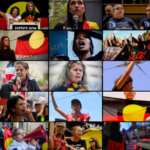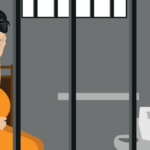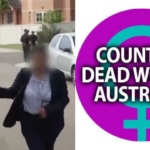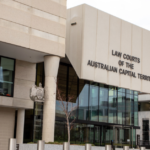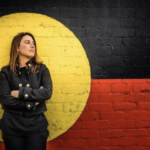Disappeared First Nations Women Are Murdered by the Settler Colonial State
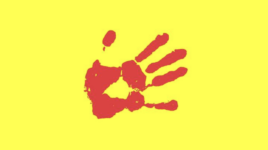
“We argue that missing and murdered Indigenous women, girls and gender diverse people are never actually missing, opens a December 2022 submission produced by Dr Amy McQuire, Sisters Inside and the Institute for Collaborative Race Research (ICRR).
“Aboriginal and Torres Strait Islander women do not just vanish from their homes, families and Country,” confirms the submission from the academics to the Senate Legal and Constitutional Affairs Committee inquiry into Missing and Murdered First Nations Women and Children.
“In fact, they are disappeared.”
Greens Senator Dorinda Cox launched the inquiry in late 2021. The Yamatji woman cited 76 such cases nationally, with related ad-hoc data. And it was charged with examining police tendencies to dismiss these cases and First Nations women being particularly targeted for violence in Australia.
First Nations women, girls and gender diverse people experience violence at heightened levels. They’re 45 times more likely to experience it than their non-Indigenous counterparts, 10 times more likely to die from assault and 32 times more likely to be hospitalised due to family violence.
Aboriginal women are five times more likely to be murdered than non-Indigenous women. And these women are more likely to be killed by strangers.
But as the ICRR submission warns these figures perceived through a settler colonial lens trigger racialised ideas around First Nations women being “inherently responsible” for crimes against them, which serve to erase the perpetrators: those being individuals, as well as the colonial state itself.
Disappeared assumed violently killed
“Violence is one of the key stories told of Aboriginal communities, and yet women are silenced in these conversions: seen as without out agencies or as bodies for which acts of violence are perpetrated,” Dr McQuire said at the 15 May hearing of the murdered First Nations women inquiry.
“In this way, the acts of resistance by Aboriginal women throughout their lives, the resistances of their families and their communities and their personhood are disappeared,” the Darumbal and South Sea Islander journalist told members of the senate committee.
According to McQuire, this then leads to “these violences being weaponised against whole communities”, which triggers unsafe policy outcomes, “like more police, more gaoling and more draconian policy responses”, like the Northern Territory Intervention.
McQuire’s doctorate was on media representations of disappeared Aboriginal women. And the ICRR submission stresses that the idea that these women are “missing” leads to questions regarding whether they chose to vanish and, therefore, are potentially complicit in their fate.
But the settler colonial state hesitates to identify these as cases of women violently murdered. The ambiguities lead to long-term myths about Indigenous women going walkabout. And, as McQuire stresses, Australian law enforcement could solve these cases, but it’s historical practice not to.
“Unworthy of searching”
Settler colonial Australia, like Canada, is “an extremely violent experience for Indigenous peoples”, the submission asserts, with police and state agencies frontline perpetrators, and these government agencies don’t consider heightened violence against Aboriginal women warrants much attention.
A Canadian inquiry into missing and murder Indigenous women found that the settler colonial state creates a culture in which people who perpetrate violence, including domestic and family violence, against Indigenous women know they can commit it with impunity.
The Australian state continues to lock up disproportionate and ever-growing numbers of First Peoples, with the rate for First Nations women having risen by 148 percent since 1991.
And the increasing criminalisation of these women leads to attitudes of their being responsible if missing, as well as police neglecting to properly investigate such cases.
Racist tropes have always informed Australian law enforcement bodies, which are institutions born of the settler colonial project’s need to usurp First Peoples of land, and these attitudes lead to large numbers of Aboriginal women victims today treated as perpetrators at domestic violence scenes.
“Ultimately, the disappearing of Indigenous women can only be understood within the broader structure of settler colonialism that aims to disappear First Nations peoples in order to occupy their lands and claim political authority,” the report authors make clear.
White state violence
White supremacy, with “racialised stories of Indigenous deficit”, serves to justify the Australian settler colonial project. And the racialised system blames First Nations communities for heightened violence against Indigenous women and law enforcement only identifies Indigenous perpetrators.
Aboriginal women are regularly seen as victimised by Aboriginal men, but in fact research into historical and contemporary colonial relations show that mass sexual violence by white men towards,” First Nations women “has been a core part of colonisation”.
“Police have been complicit in this widespread violence, both as direct perpetrators and by refusing to investigate the violence of other settlers,” the report adds. And in criminalising Black women, the state leaves “particularly white perpetrators” able to target these women with little sanction.
“The ongoing solidarity between police and individual white male perpetrators is a key condition of the culture of impunity which produces violence against Indigenous women,” the researchers continue.
So, perpetrators can only act in the way they do because of longstanding state practices.
“The police, the courts and coronial inquests fail to deliver the justice these families deserve,” Sisters Inside chief executive Debbie Kilroy told last week’s hearing. She added that the coronial process often then functions “as an alibi court for the state rather than a true seeker of justice”.
Kilroy outlined that in searching for change the inquiry must look beyond “bolstering the carceral state” or “the racial and gendered violence of policing”, rather the lawyer recommended the establishment of an independent national body to investigate these crimes.
Purposefully hidden
“The violence faced by Aboriginal women is both systemic and colonial, perpetrated as it has been since first invasion,” said Institute for Collaborative Race Research director Dr Chelsea Watego. “Like other forms of colonial violence, it has rendered invisible by the very agencies that perpetrate it.”
The Munanjahli and South Sea Islander writer pointed to a Queensland system requiring police to identify types of violence involved in a missing person incident or a murder, yet no category existed for that from a stranger or acquaintance, which is the main type of violence involved in these cases.
The IRCC submission stresses that the approach taken to these crimes erases white male perpetrators, whether “strangers on the street or agents of the state”, and then it turns to the nation and its structures as the answer to the crime that at its foundation, it seeks to propagate.
The authors of the submission then warn the inquiry that it ought to broaden its scope, so that instead of conceiving the settler colonial state and it systems as the means to solve the crisis of disappeared Aboriginal women on this continent, the state must be seen as the chief cause of it.
“Grieving families are not asking you to keep better count of our dead, or seeking commemorations or condolences for our losses, as the terms of reference seem to imply” Dr Watego continued.
“These families want justice for racial and gendered violence against Indigenous women. These families want accountability and safety for our communities now.”



